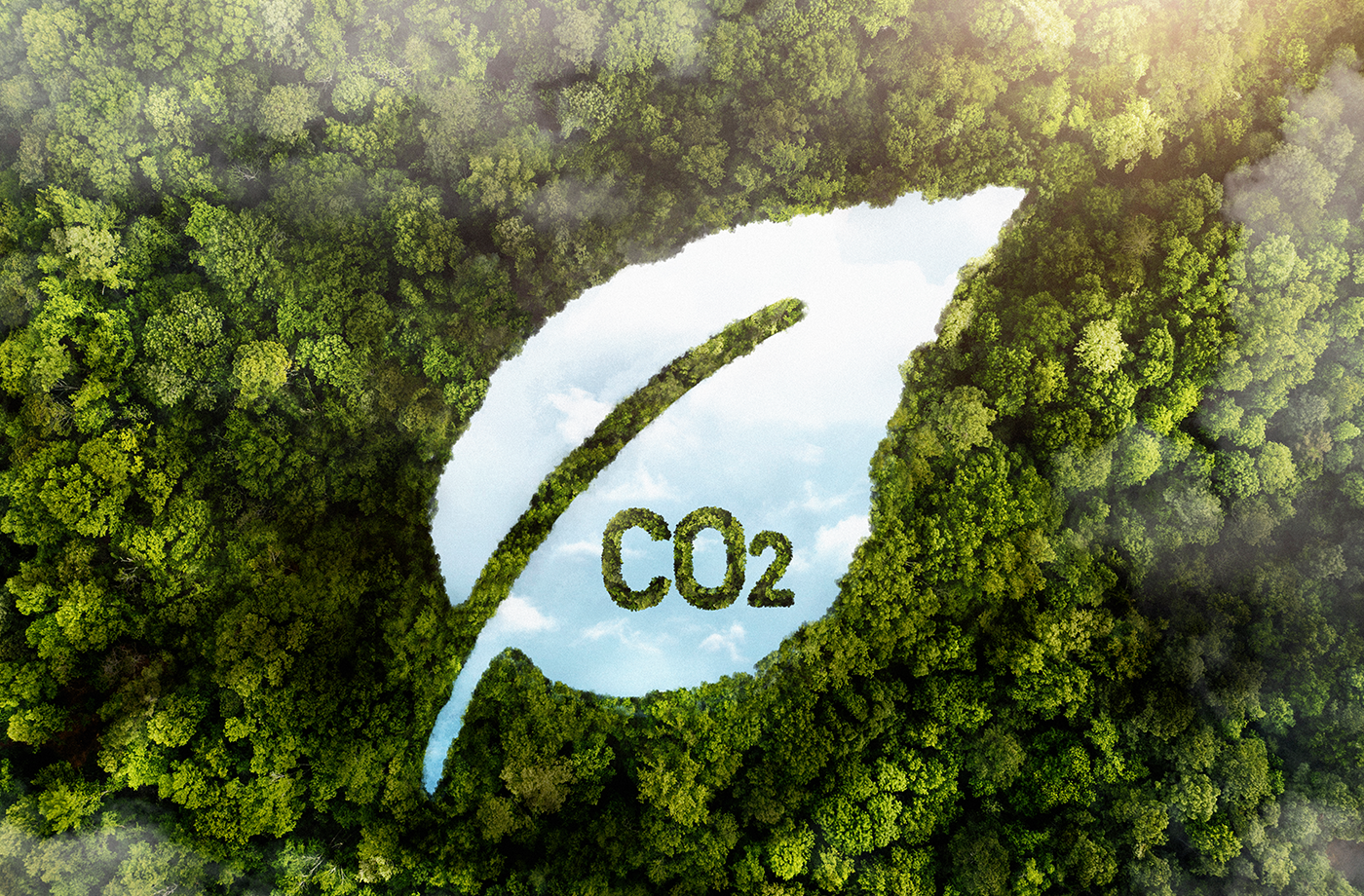There are several ways companies can abuse "Carbon Offset." Are individuals or companies aware of their annual carbon dioxide emissions and how to reduce them? The carbon dioxide level is higher than ever in human history. One can bypass this issue or be unaware of it. There are many perspectives, but I will now focus on one specific view. During 2021, thousands of the world's largest corporations committed to making "Net Zero" one of their business priorities.
To remind ourselves, "Net zero" represents a state in which the amount of carbon dioxide emissions equals the amount we can neutralize, preventing further pollution of the planet. "Net Zero" helps reduce environmental damage and slow the effects of climate change. How do large corporations explain their ecological contributions? Some minimize carbon dioxide emissions, finance greening and forest expansion, support renewable industries and agriculture, use renewable sources, promote and finance climate projects, and invest in "Carbon Offset" to achieve the remaining "Net Zero" status. In essence, "Carbon Offset" is envisioned as compensation for emitted carbon dioxide created by certain activities by investing in something that reduces that amount.
For example, suppose we fly on a plane and create pollution. In that case, we can offset it by investing in a project that removes carbon dioxide from the atmosphere, such as tree planting or installing renewable energy systems. The idea is to neutralize emissions where reducing them is impossible. Some analyses have shown that almost two-thirds of the carbon dioxide emissions from the mentioned major corporations are offset through "Carbon Offset." In contrast, others have indicated that most available offsets on the market are unreliable in reducing emissions. This market is growing, given that it reached $2 billion in 2021.
Like any market, it has become accessible to individuals as well. With every purchase of a travel package, shipping service, flight, or ride in specific companies, you can donate a "Carbon Offset" amount to carbon-neutralize your activity. On the other hand, companies directly sell offset services to individuals, allowing them to neutralize their carbon footprint. Sounds great?
The fundamental question is whether investing in "Carbon Offset" leads to "Net Zero." As someone with a long history in finance, I would ask a simple question: who keeps track, and what does ecological accounting look like? Has this funding method genuinely contributed to the extensive forest planting that has been advocated? Who certifies that companies selling carbon credits genuinely invest in what they promote? Suppose we're not planting forests to neutralize carbon dioxide but preventing the cutting of existing ones, which has proven to be one of the most significant investments in carbon credits. Are we genuinely making an ecological contribution?
Large corporations, regardless of the level of carbon dioxide emissions they produce, are racing to contribute more to the "Net Zero" effect. There's so much talk about it lately, but it's not a battle for the well-being of our planet but a race for advertising points.
Suppose consumer protection organizations check whether an advertised healthy breakfast is genuinely beneficial and whether products claiming to be additive-free truly have no additives. Who investigates these claims of carbon neutrality used extensively in marketing campaigns and brand reputation enhancement?
There are specific registries for "Carbon Offset" related to voluntary investment in carbon neutrality, but they are not accountable to anyone. Anyone can establish them, and the standards by which they approve credits need to be higher. Almost anyone can be approved for credits without extensive verification.

In any case, there are several ways in which companies can abuse "Carbon Offset."
- Double counting: A company may claim to have offset its emissions by purchasing carbon credits, but another company might have used those same credits to offset its emissions. The result is that the same emission is accounted for multiple times.
- Mitigating trivial emissions: Companies might use greenhouse gas mitigation to offset relatively insignificant emissions instead of addressing their primary emission sources.
- Purchasing offsets that don't represent real emission reductions: Some carbon offset projects may not result in actual, verifiable emission reductions. For example, a company might buy carbon credits from a project that would have occurred anyway, regardless of their purchase. Thus, it doesn't represent a new reduction in carbon dioxide.
- Greenwashing: Some companies might use carbon offsets as a marketing tool to present themselves as environmentally friendly without substantially changing their operations.
Not considering the entire lifecycle of their products or services: Companies might offset emissions produced during the manufacturing or use of their products or services but not those generated during the extraction, transportation, and disposal of raw materials.
The geographic displacement of offsets is an additional problem, as emissions may increase in one location while decreasing in another. Even though the planet theoretically aims for a net effect, it is not equal everywhere.
Similar to how diamond and lithium mining has adversely affected populations in those geographical locations, unfortunately, "Carbon Offset" has negatively impacted impoverished communities in Africa, forced to relocate because their land was sold for reforestation. Deforestation in tropical regions will reach 80 percent by 2022 for agricultural development and timber sales. The reverse process is happening again to the detriment of the population and the local ecosystem.
And we continually return to the fact that carbon offsetting is done repeatedly through reforestation. Is reforestation enough? Humanity today has a carbon dioxide emission 4000 times greater than in the pre-industrial era, and there isn't enough space on the planet to plant so many forests so that alone cannot be the solution; it's an easy solution but insufficient.
As a planet, we are estimated to have 500 million hectares of land available for afforestation, which is insufficient to fulfil all offset promises. Ten per cent of this is needed to neutralize the negative impact of an oil company.
"Carbon Offset" has the potential to promote ecology by reducing greenhouse gas emissions and supporting projects that promote renewable energy, reforestation, and other initiatives to reduce atmospheric carbon dioxide. These projects can positively impact the environment and local communities by reducing air pollution, protecting biodiversity, and creating job opportunities.
However, if carbon offsetting is done correctly, it can positively impact the environment. For instance, if these projects are not adequately monitored and verified, they may not result in actual emissions reduction. Moreover, if "Carbon Offset" is used as a way for companies to avoid reducing their emissions, it can create harmful business practices and undermine efforts to tackle climate change.
Overall, "Carbon Offset" can be a valuable tool in the fight against climate change. Still, it's crucial to ensure that offset projects are of high quality, verifiable, and do not create negative impacts on the environment or local communities. It's also important not to rely solely on mitigation to achieve a "Net Zero" effect but to reduce emissions as much as possible.
Planting new forests is beneficial because trees absorb carbon dioxide from the air, reducing its presence in the atmosphere. Still, we must remember about renewable energy sources, preventing carbon dioxide from entering the atmosphere through storage, energy efficiency, etc.
"Carbon Offset" must not be just a marketing campaign. Every small step forward is a step. Turn off the lights when not in use. Turn off the water when not needed. Step by step, sincerely and without pretence. We are not required by nature; nature needs us!


